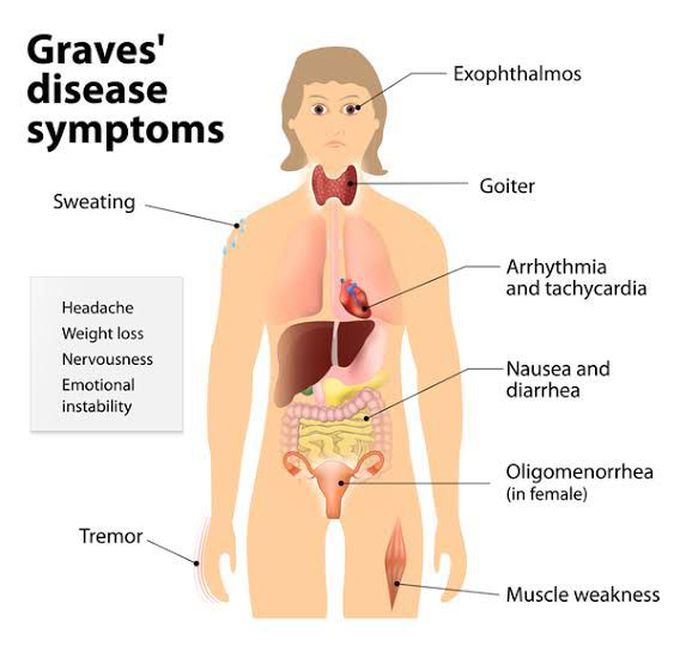


Graves Disease
Graves' disease is an immune system disorder that results in the overproduction of thyroid hormones (hyperthyroidism). Common signs and symptoms of Graves' disease include: -Anxiety and irritability -A fine tremor of the hands or fingers -Heat sensitivity and an increase in perspiration or warm, moist skin -Weight loss, despite normal eating habits -Enlargement of the thyroid gland (goiter) -Change in menstrual cycles -Erectile dysfunction or reduced libido -Frequent bowel movements -Bulging eyes (Graves' ophthalmopathy) Fatigue -Thick, red skin usually on the shins or tops of the feet (Graves' dermopathy) -Rapid or irregular heartbeat (palpitations) -Sleep disturbance An uncommon manifestation of Graves' disease, called Graves' dermopathy, is the reddening and thickening of the skin, most often on your shins or the tops of your feet. The antibody associated with Graves' disease — thyrotropin receptor antibody (TRAb) — acts like the regulatory pituitary hormone.TRAb overrides the normal regulation of the thyroid, causing an overproduction of thyroid hormones (hyperthyroidism).

